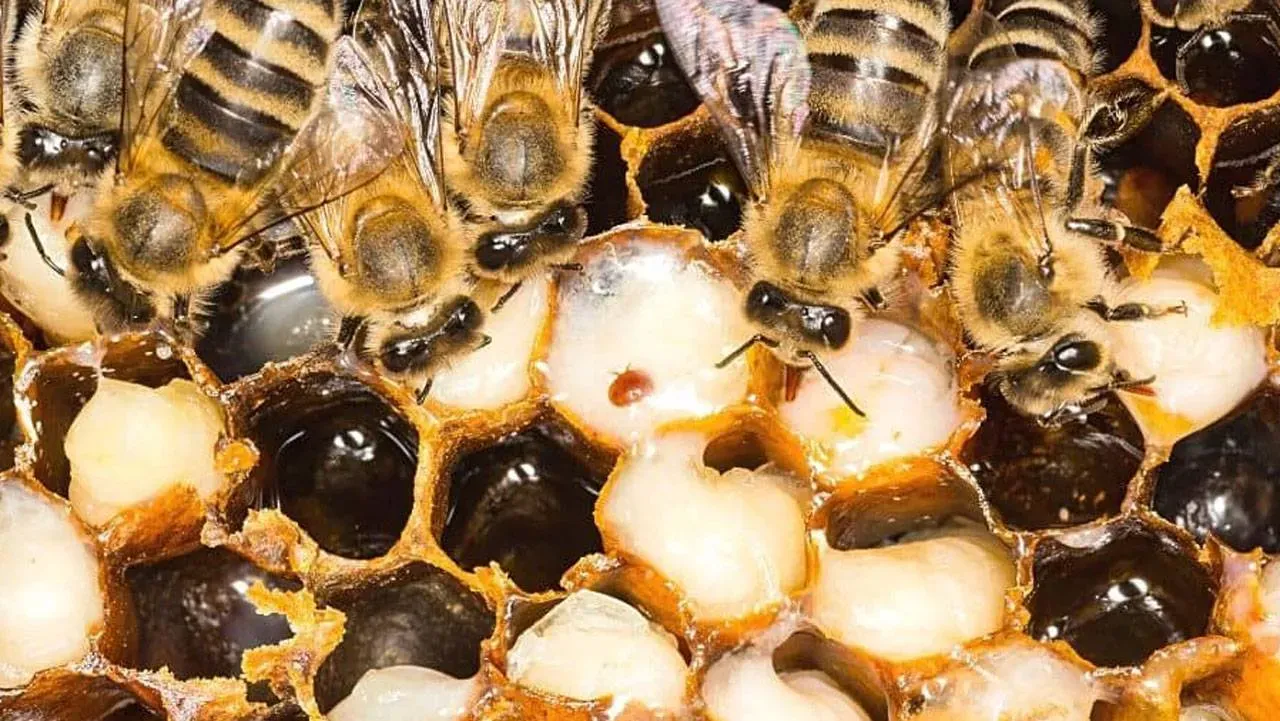The destructive varroa mite has been discovered in bee hives at Yarram, marking the southern-most detection of the parasite in Victoria, ABC Rural has reported.
Local hobby beekeeper Marc Wilson made the alarming discovery during a routine hive inspection last weekend, immediately reporting it to Agriculture Victoria who sent officers to verify the infestation.
"I went out there and did a routine check," Wilson told the ABC. "The third hive in, I looked at it and said, 'Oh boy, I've got 'em'."
The tiny red mites attack European and Asian honey bees, feeding on adult insects and their larvae. They're considered one of the greatest threats to Australia's honey and pollination industries, with potential economic losses estimated at $1.25 billion over 30 years.
The pest was first detected in Australia in Newcastle in February 2022, with authorities abandoning eradication efforts 15 months later to focus on management instead. Victoria recorded its first outbreak a year ago, and the parasite has since spread across multiple regions.
Agriculture Victoria's Bee MAX map shows 13 infested premises in Sunraysia, six in central Victoria, seven in far east Gippsland, and now the Yarram detection – bringing the threat closer to South Gippsland's agricultural heartland.
Fellow Yarram beekeeper and Australian Crop Pollination Association president Matthew Petersen praised Wilson's responsible approach but expressed concern about industry preparedness, particularly among commercial beekeepers.
"We're a small industry but we're so important when it comes to food production so we need to keep everybody in business," Petersen told the ABC.
Gippsland Apiarist Association president Stan Glowacki said the parasite was detected in Bruthen and Nowa Nowa about two months ago, emphasising that no country has successfully eradicated varroa mite.
"Once the mites are established here and people know more about their bees' genetics, we'll eventually look to breed varroa-resistant bees," Glowacki told the ABC. "We're not at that stage yet."
Wilson plans to treat his hives with chemicals in coming weeks, saying there's "not really any other option at this stage" and his goal is to keep his bees alive.
Local beekeepers are urged to regularly inspect their hives and report any suspected infestations to Agriculture Victoria immediately. Cara Schultz






